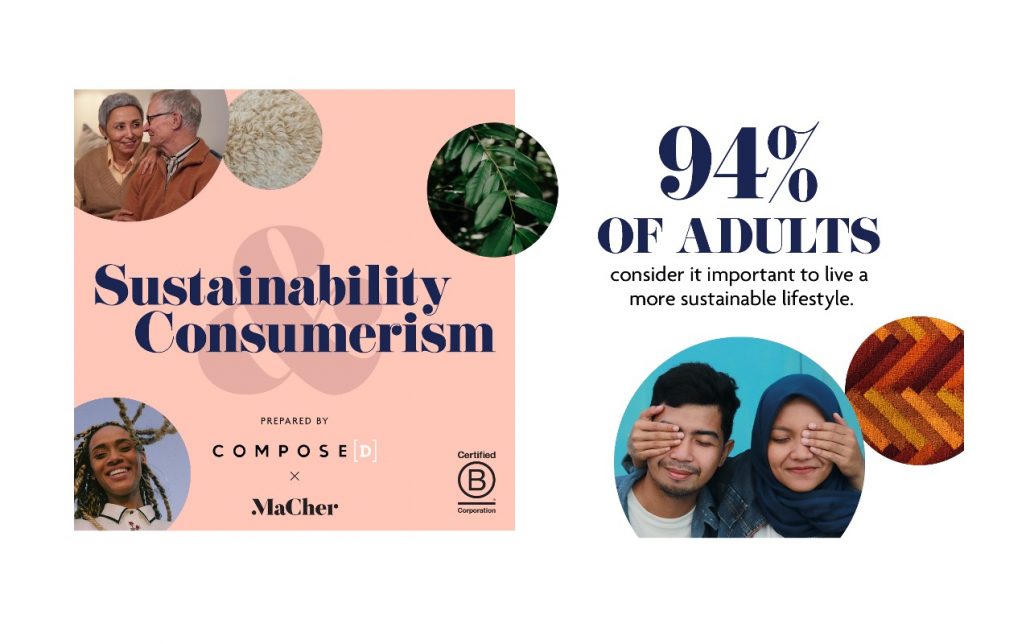Sustainability Significantly Impacts Purchasing Behavior and 47% Would Pay More for Sustainable Products
New York, NY — May 6, 2021 — A new study, Sustainability & Consumerism: U.S. Consumer Behaviors and Preferences, released today by Compose[d], a digital creative services and strategy agency, and MaCher, a promotional product and design company, takes a deep dive on how consumers view sustainability and their expectations of brands. The study surveyed 1,000 consumers (age 18-75) in the U.S. in March 2021.
Sustainability alone doesn’t determine consumer purchasing behavior but it is of growing importance. One in three consumers report it is hard to find sustainable options across all product categories — particularly electronics. There is therefore an opportunity for brands to increase sustainability to attract a greater share of customers.
Key findings from the report include:
- 43% of consumers wish there was more information about living sustainably
- Boomers and Gen X are 2x more likely to donate clothes for reuse and to actively reduce their use of single-use plastics, while millennials and Gen Z are 2-3x more likely than older consumers to be vegetarian/vegan and to ride a bike instead of driving
- 61% find products produced with minimal environmental impact to be the top marker of sustainability
- 60% of consumers say reusable products are more sustainable. 43% would pay more for reusable products with women being 23% more likely than men to pay more
- Consumers (64%) would rather use products made from recycled materials than new/virgin material
- 75% of adults wish there was a way to offset the impact their travel has on the environment
- Baby Boomers & Gen Z are 20% more likely than any other age group to say they’d pay more for environmentally-friendly or reusable products
- “Recycled” is the word most likely to influence consumers: Boomers (65%), Gen X and Gen Z (52%), while the word “Green” is of great impact for millennials (51%) and Gen Z (43%)
“Sustainability has proven to be more than a buzzword or passing fancy for consumers. The brands that practice sustainability have an opportunity to capture consumer loyalty and align with them on a commitment to safeguard the environment for the future,” said Jason Parkin, President and Chief Creative Officer, Compose[d].
“Consumers are increasingly paying attention and selecting brands that put sustainability first. They want brands to share their values, and think a brand should be dedicated to sustainability and environmental transparency. Brands that ignore this call from consumers will be left behind as this trend continues to grow,” said Rochelle Turner, Head of Research & Insight, MaCher.


